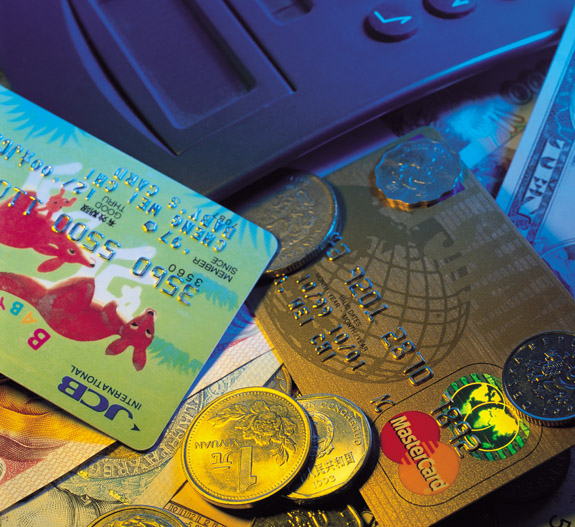Financial fraud in the first half of 2016 increased by a quarter to £399.5m, according to new figures published by Financial Fraud Action UK. FFA UK says it’s enabled by scams and online attacks.
Banks’ security systems continued to prevent most fraud from taking place, as prevented fraud totalled £678.7m, FFA UK said. This is equivalent to £6 in every £10 of attempted fraud being stopped. Total financial fraud losses across payment cards, remote banking and cheques were £399.5m in the first half of the year, a 25 per cent increase on the same period in 2015, when total losses were £320.3m.
Losses on payment cards – which includes remote purchase fraud, lost and stolen cards, card not received, counterfeit card and card ID theft – stood at £321.5m, compared to £244.6m in the first half of 2015, an increase of 31 per cent. The prevented loss for cards stood at £475.7m.
Remote purchase fraud increased by 31 per cent to £224.1m between January and June, compared to £171.7m in the same half of 2015. FFA UK suggests fraudsters are using card details obtained with malware and data breaches, while there are more opportunities to commit such crimes because of the growing number of e-commerce sites.
The UK saw a slight increase in remote banking losses, up from £66.2m in the first half of 2015, to £70.6m, with a prevented loss of £103.2m. Scams continue to drive remote banking fraud, with criminals tricking victims into handing over their money or banking details.
Last month saw the launch of Take Five, a national awareness campaign to combat fraud.
Katy Worobec, Director of FFA UK, said: “Banks use a range of robust security systems to protect their customers but as these systems become more sophisticated, criminals have increasingly been turning to scams and exploiting data breaches to con victims out of their personal and security information, as well as money. Banks will continue to invest in advanced verification methods, including biometric validation and dynamic card security codes. We ask all consumers to be alert to scammers, which is why we recently launched the Take Five campaign. The industry takes its responsibility to combat fraud extremely seriously, but banks cannot stop all fraud on their own. It is essential all organisations with a role to play work together to better protect individuals and companies.”
FFA UK is urging customers to be vigilant of any unsolicited phone calls, text messages and emails and to be extremely cautious about giving out any personal and security information unless absolutely sure they know who they are dealing with. Customers are reminded their bank or the police will never call them to ask for their online banking passwords or four-digit card PIN, or to transfer money to a new account for fraud reasons.
FFA UK is also urging all organisations that hold personal and financial data to improve their security systems, to prevent data breaches. Retailers selling remotely can also use a number of tools to build up a profile of their customer, verify the cardholder and ensure they receive payment securely.
Anyone who thinks they have been a victim of fraud should contact their bank and the police reporting centre Action Fraud at once.
Tony Blake, senior fraud prevention officer at the Dedicated Card and Payment Crime Unit, the FFA UK-sponsored police unit which investigates fraud, said: “Fraudsters can be very convincing and often pose as representatives from a trusted organisation in order to appear genuine. If you are asked to transfer some money or provide your personal details and you think it could be a scam, take five minutes to think about what you are being asked to do. A genuine organisation will not mind if you check who you are speaking to, because people are not always who they say they are.”
Comment
John Marsden, Head of ID and Fraud at the credit checking agency Equifax, says: “Cyber and ID fraud dominate the fraud landscape, and online scams and attacks continue to rise. E-commerce is growing, and is a tempting prospect for fraudsters looking to use identity and payment data such as credit and debit card information they have gained via the vast ‘carders markets’. Fraudsters are sophisticated and can easily gather information which can then be used to open accounts and make purchases online fraudulently. This situation is exacerbated by an increasing frequency of data breaches by hackers who can then sell this data on to other criminals. In addition, a frightening number of consumers are also still being tricked into handing over their personal data. This usually occurs when a criminal is able to convince an individual that they are emailing or calling from a legitimate organisation and they need to verify their personal details. Using this information the criminal fraud networks can create high quality ID data to sell via the dark web.
“The financial services industry has to work together, educating consumers and sharing information to help collectively tackle this criminal activity. The focus must be two-fold. It is vital that any organisation holding personal data continuously evolves the systems and processes in place to keep that information safe. Equally, any business handling financial transactions has to take every possible step to ensure the customer they are dealing with is genuine. It is clear that passwords alone are no longer enough, fraudsters are wise to our thinking when we create a password, making them all too easy to crack. This is why businesses need to invest in new technology like biometrics and device recognition creating multiple layers of defence. The criminals don’t stand still, and businesses of all sizes need to work hard to stay ahead.”










